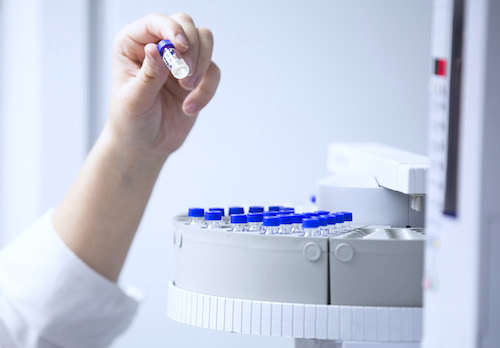 Cannabis quality control in Florida starts with the Medical Marijuana Treatment Centers (MMTC’s). MMTC’s need to ensure they are producing the highest quality cannabis products that are free of pesticides, mycotoxins, residual solvents, heavy metals, micro-organisms, and other impurities.
Cannabis quality control in Florida starts with the Medical Marijuana Treatment Centers (MMTC’s). MMTC’s need to ensure they are producing the highest quality cannabis products that are free of pesticides, mycotoxins, residual solvents, heavy metals, micro-organisms, and other impurities.
In order to validate that cannabis products are free of these contaminants, MMTC’s in Florida are required to contract with accredited laboratories like Modern Canna. Up until now, the credibility of the cannabis testing industry in the United States has been under scrutiny. Like any new industry, several of the early pioneers were able to cut corners, and they did. Reporting inflated potency results and deeming products safe for human consumption when hazardous contaminants were present at high levels, was not an uncommon occurrence.
Modern Canna is dedicated to strengthening the credibility of the cannabis testing field by reassuring industry professionals and consumers that there are scientifically proven ways to ensure that accurate data is being produced. Our promise to our clients and to the medical patients in Florida is that we will continue to stay ahead of the curve when it comes to cannabis quality control in the lab.
Our Message To The Cannabis Operators
Remember that consumer health and safety is at stake, and accurate data will only help you produce better products in the long run, ensuring your path to sustainability.
Data is a quality control laboratory’s only product. It is a product that under no circumstances can be compromised. A laboratory that is willing to compromise their only product is not the long term partner you want or need. The only course of action at this point in time is to never compromise integrity.
Operators use Modern Canna when they need a complex problem solved, whether it’s a difficult matrix that needs method development, confirmatory analysis on existing data, or identifying the source of an internal contamination issue, which is something our organization takes great pride in.
Standardization is one of the pillars of any laboratory. We have built all of our validated methods from widely accepted EPA methodologies used in the environmental testing industry. Cannabis is a complex matrix to work with and if the complexity of the plant is not factored into the methodology, whether that be unintentional or intentional, the data obtained by the laboratory may be inaccurate. Modern Canna has taken the time to ensure that the difficulties seen with the matrix do not impact the accuracy of the results obtained.
Cannabis Quality Control Process
Modern Canna goes above and beyond to ensure that results, found in every final report and certificate of analysis (COA) issued, are verifiable, reproducible, and legally defensible. Our company is able to accomplish this by running strict quality control with every batch tested that includes at least a method blank, a laboratory control sample, a laboratory control sample duplicate, a matrix spike, and matrix spike duplicate.
- Method Blank – A Method Blank is a contaminant-free, pure matrix that is used to identify possible contamination in the handling and preparation of the sample batch.
- Matrix Spike (MS) – MS samples are separated into three segments. One segment is used to determine which target analytes are present, while the other two are spiked by the laboratory with a known concentration of the target analyte. The spiked sample is prepared and ran together with the un-spiked samples. The amount of analyte that is recovered from the spiked sample is identified, quantified, and reported as “percent recovery”. The term “Matrix” refers to the actual material of the sample. The MS allows the laboratory to demonstrate method accuracy for particular sample materials.
- Matrix Spike Duplicate (MSD) – Duplicate control sample that is processed with each batch.
- Laboratory Control Sample (LCS) – LCS samples are also contaminant-free and are spiked with a known concentration of the target analyte. Unlike the MS and MSD, the LCS allows the analysts to determine analyte recovery accurately, without any matrix interferences.
- Laboratory Control Sample Duplicate (LCSD) – Duplicate control sample that is processed with each batch.
The Calibration Curve
We use the calibration curve model when analyzing cannabis samples. This is done by comparing the client sample, which is of unknown concentration, to a set of standard samples whose concentration is known. The calibration curve helps us understand the instruments response to an analyte and determines the concentration of the unknown (client) sample.
For greater accuracy, we run the standard samples in the same matrix as the unknown sample. This matrix contains all the components of the sample minus the analyte of interest. This includes all proteins, metals, ions, salts, etc.
 Internal and External Hemp Quality Control
Internal and External Hemp Quality Control
Modern Canna tackles cannabis and hemp quality control both internally and externally.
Internal Quality Control
This includes the monitoring of all testing procedures, equipment, and personnel. The equipment monitoring, for example, may include regular interval checkups of incubators to confirm they’re at the right temperatures. Likewise, monitoring of staff ensures they follow stringent protocol and don’t engage in behavior that may invalidate test results. Our advanced Laboratory Information Management System (LIMS) makes it virtually effortless to keep track of everything happening in the lab on a day-to-day basis.
External Quality Control
This is an overview analysis of our internal quality control by an external agency. External quality control ensures long-term accuracy and adherence to the latest quality control regulations. Some labs that claim they meet quality control practices only implement internal quality control measures. Both internal and external controls are necessary to ensure all laboratory functions are operating correctly and efficiently. Modern Canna is ISO/IEC 17025 accredited and NELAP certified. Both organizations conduct biennial audits of all laboratory processes and personnel.
Proficiency Testing
This is a procedure that determines the performance of individual labs for specific tests and measurements.
Proficiency testing, also known as inter-laboratory comparison, is an additional part of Modern Canna’s quality control system. The results from our lab are measured against those obtained from other laboratories. Actively engaging in proficiency testing programs ensures these key benefits:
- Technical and procedural competence
- Identification of areas that don’t meet quality control standards
- Increased consumer trust in the lab’s accuracy of results
- Verification of effective training
Quality Control and Quality Assurance
Clients can be sure that our testing meets quality assurance standards. While quality control utilizes statistical measurements to analyze a lab’s ability to meet analytical specifications, quality assurance is about ensuring the adherence of proper testing guidelines and protocol.
Only Entrust Your Cannabis or Hemp Samples with a Lab that Runs Full Quality Control
We advise to always choose a lab that can validate results with a full quality control report. Contact Modern Canna for more information about cannabis quality control testing in Florida and hemp quality control testing anywhere in the United States.
Additional “Cannabis Testing Quality Control” Resources:
- Global Compliance Panel, Calibration Curve in Chemistry, https://www.globalcompliancepanel.com/control/calibration-curve-in-chemistry
- Proficiency Testing, What Is Proficiency Testing? https://www.hn-proficiency.com/profi.htm


